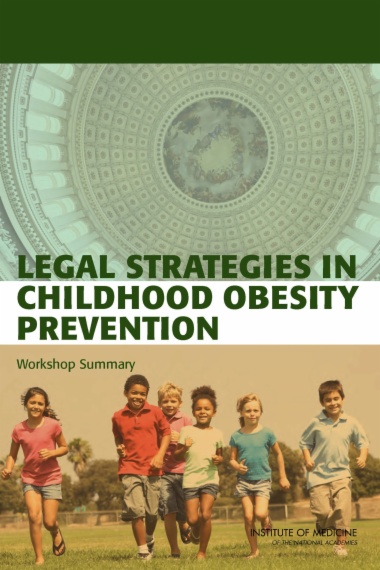

Since 1980, childhood obesity rates have more than tripled in the United States. Recent data show that almost one-third of children over 2 years of age are already overweight or obese. While the prevalence of childhood obesity appears to have plateaued in recent years, the magnitude of the problem remains unsustainably high and represents an enormous public health concern. All options for addressing the childhood obesity epidemic must therefore be explored. In the United States, legal approaches have successfully reduced other threats to public health, such as the lack of passive restraints in automobiles and the use of tobacco. The question then arises of whether laws, regulations, and litigation can likewise be used to change practices and policies that contribute to obesity.
On October 21, 2010, the Institute of Medicine (IOM) held a workshop to bring together stakeholders to discuss the current and future legal strategies aimed at combating childhood obesity. Legal Strategies in Childhood Obesity Prevention summarizes the proceedings of that workshop. The report examines the challenges involved in implementing public health initiatives by using legal strategies to elicit change. It also discusses circumstances in which legal strategies are needed and effective. This workshop was created only to explore the boundaries of potential legal approaches to address childhood obesity, and therefore, does not contain recommendations for the use of such approaches.